👩🚀 👨🚀
Scaling a
Single Page Application
with GraphQL
#whoami
Charly POLY
Past
➡️ JobTeaser alumni
➡️ 1 year @ A line
Now
Senior Software Engineer at

The context
Première plateforme collaborative
de conseil, création et développement pour des projets marketing.
- 2 products:
- ACommunity:
- marketplace
- The platform:
- projects
- chat
- ACL
- timeline
- selection lists
- ACommunity:
The starting point
- Redux store for data
- one redux action per "CRUD":
-
updateModel, createModel, deleteModel
-
- Rest CRUD based service: HttpService
{
models: {
chats: {
"8660f534-c425-4688-b4a9-d9ab11c6af85": { /* ... */ }
}
}
// ...
}The problem

The chat and the timeline components
-
Timeline has posts that:
- have different types: media, note, text, links with preview
- many types of medias: photos, videos
- theater view (Facebook like)
-
Chat are contextual:
- people chat (1-1, group chats)
- post chat
The chat data
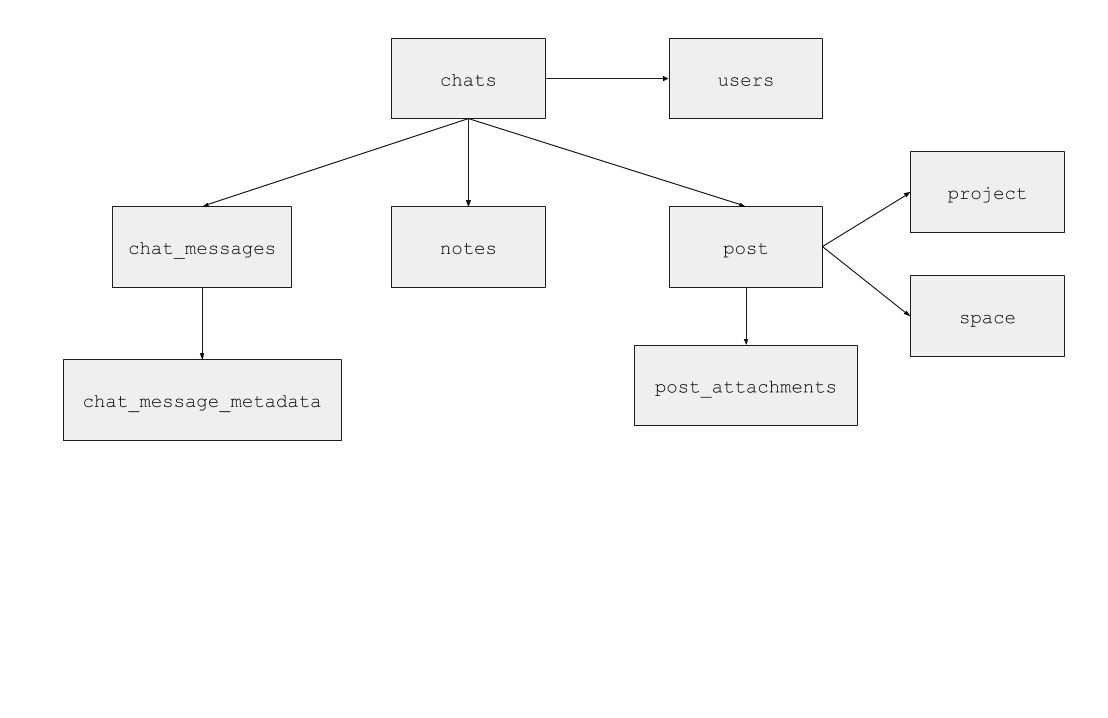
The chat data
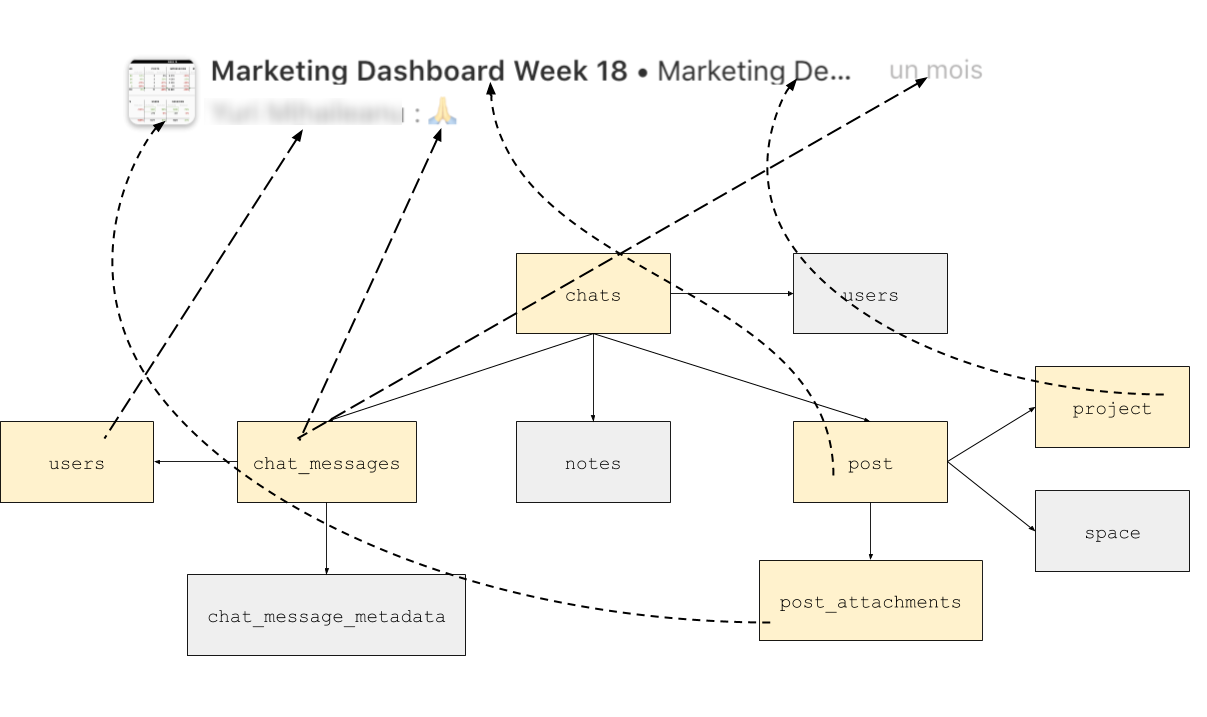
The chat data

- post with file
- post with text only
- post with image
- post with note attached
- post with video
The chat REST journey
Numbers
For a average "list chats" query:
➡️ 20-50 chats of all types (without paging)
➡️ lot of n+1, n+2 requests per chat
➡️ lot of redux store updates
➡️ lot of react components re-render 💥💥💥
Solutions
paging
➡️ didn't solved requests issues
"includes" on API side with n+1 objects included in response
➡️ do not resolve n+2 queries issue
preload all chats in a dedicated /preload API endpoint
➡️ still some perf issue with realtime and updates refetches
The chat REST journey
The first working solution
Hydra
a custom client side relational cache with transactional redux dispatch
➡️ discover API request based on response data shape
➡️ wait all requests to finish before commit to redux
➡️ on update, ensure redux cache object relations are up-to-date
Example: a query on a chat can update a project object in cache
The chat REST journey
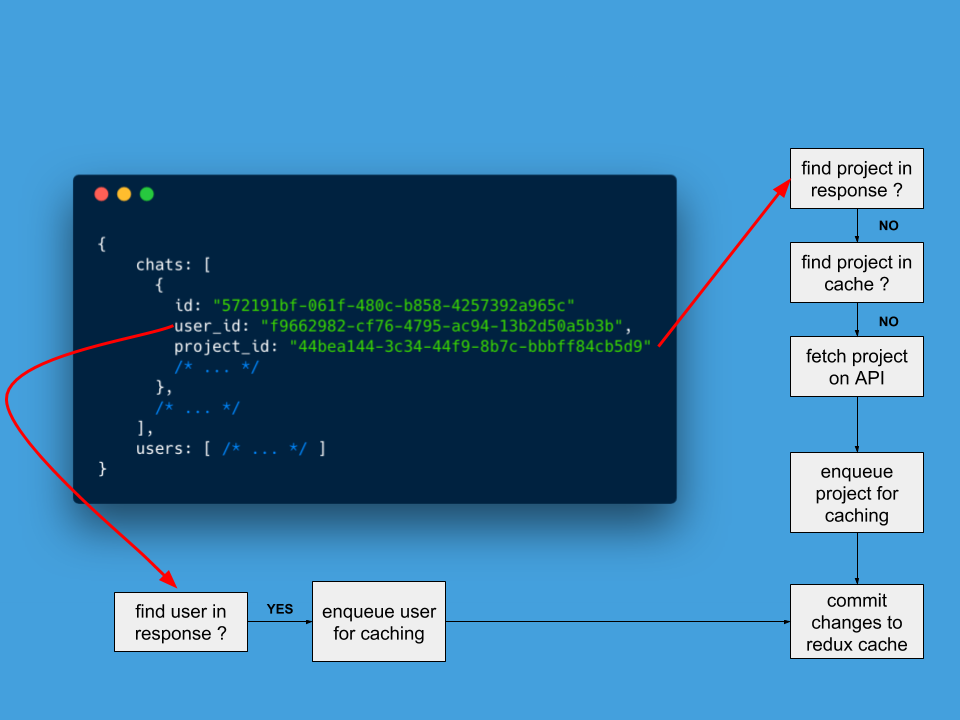
The chat REST journey
Hydra
The first working solution fail
Users now have average of 80-100 chats
- client cache to many times invalid (too aggressive) 🔥
- API too slow 🔥
The chat REST journey
GraphQL and Apollo at the rescue
➡️ specific chat query with server-side optimisation
➡️ no more nesting issue (up to 4 levels easily)
➡️ models/data state handled by Apollo using Observables
➡️ advanced caching strategies for better UX
The chat in GraphQL
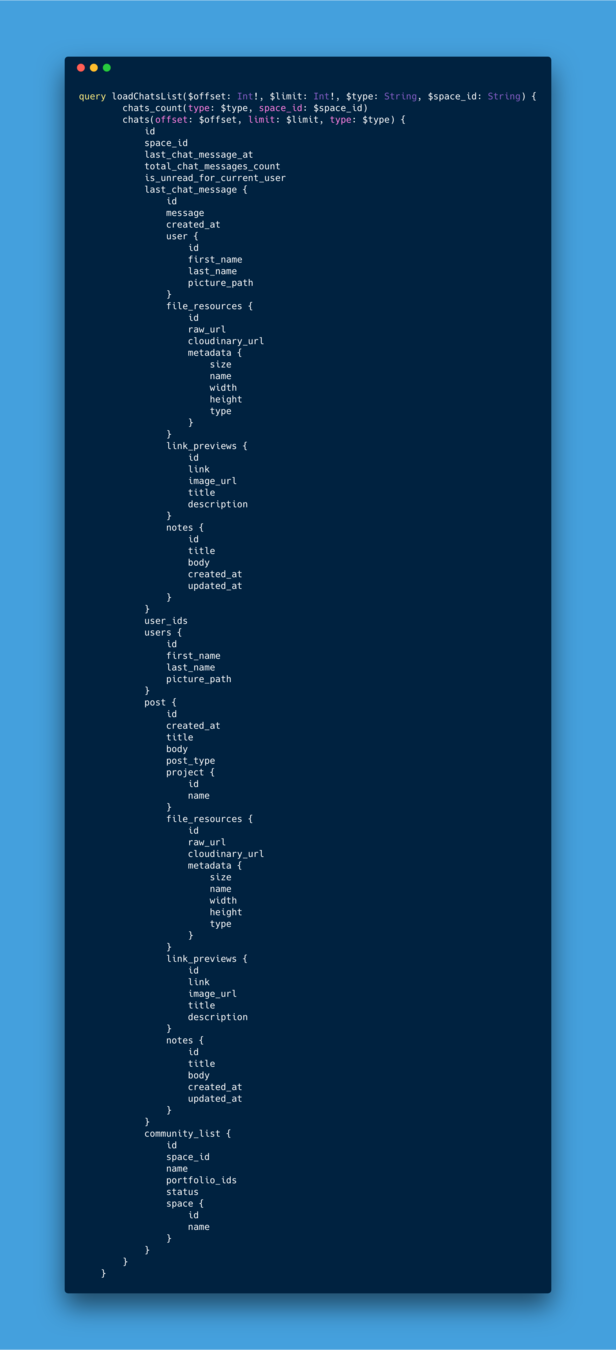
The chat in GraphQL
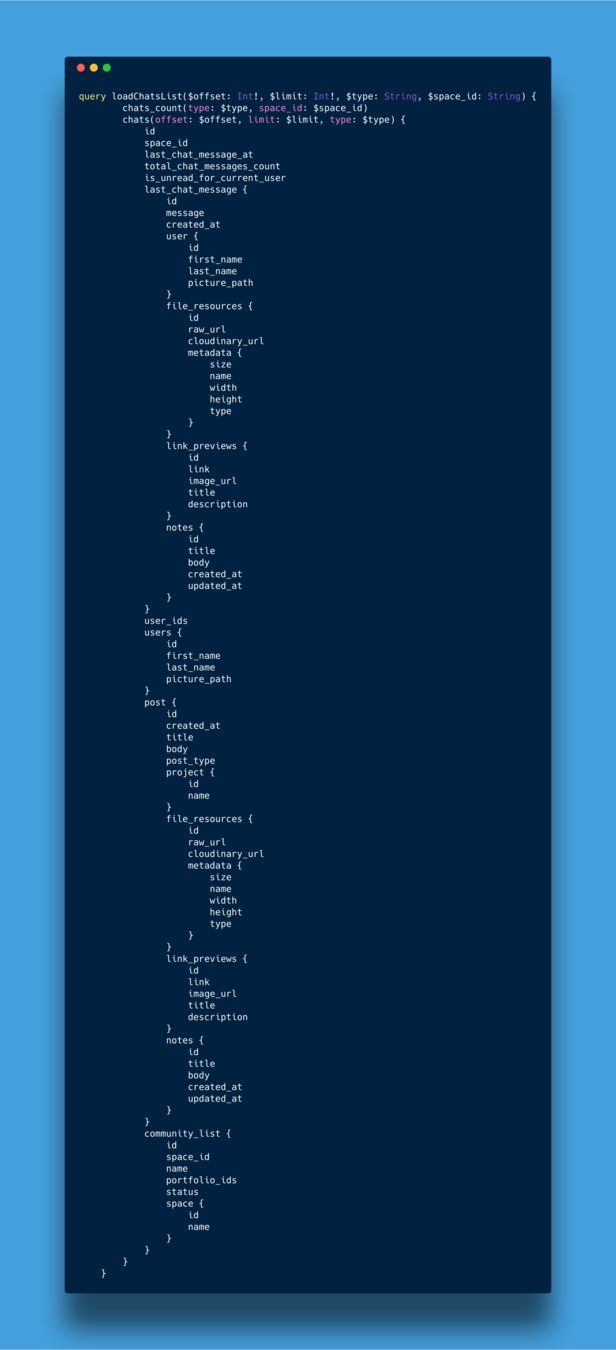
The chat in GraphQL
Why Apollo and not Relay?
➡️ Very flexible and composable API
➡️ Support custom GraphQL schema without "Relay edges"
➡️ more complete options on caching strategies
➡️ easier migration
➡️ possibility to have a local GraphQL schema (state-link)
The chat in GraphQL
Apollo: the smooth migration

The chat in GraphQL
Apollo: the caching strategies
-
"cache-first" (default)
-
"cache-and-network"
-
"network-only"
-
"cache-only"
-
"no-cache"

The chat in GraphQL
The Apollo super-powers
- apollo-codegen: TypeScript/Flow/Swift types generation
- Link pattern: like rake middleware on front side
- Local state: a nice alternative to redux
Going further with GraphQL
<ApolloForm>
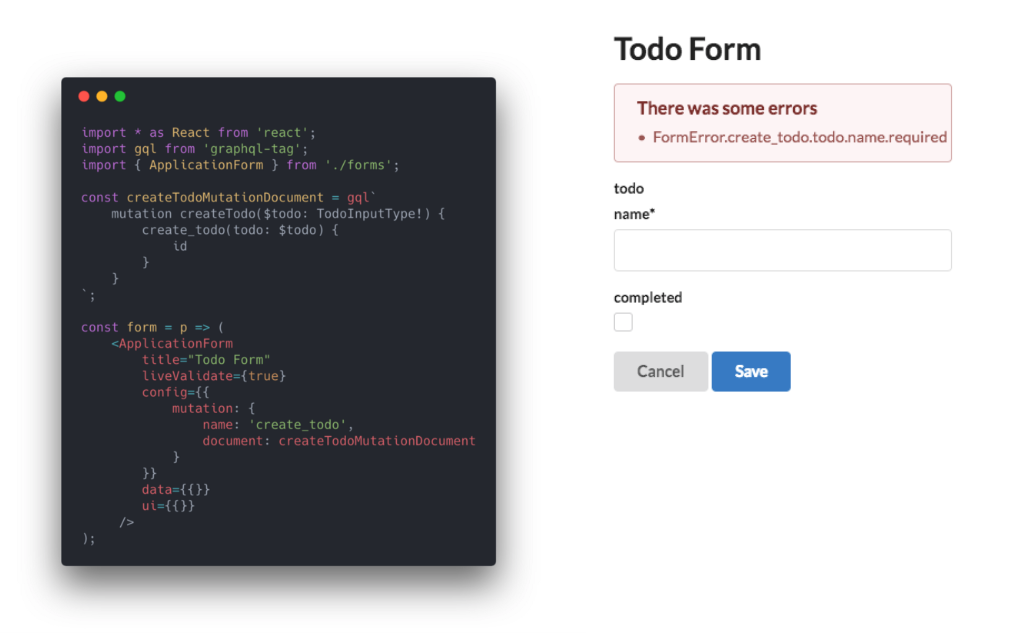
Going further with GraphQL
<ApolloForm>
- Introspect your API GraphQL Schema
- Build a JSON-Schema on available types and mutations
- Create configuration files
- Automatic form bootstrapping 🎉
Going further with GraphQL
<ApolloForm> advantages
-
distinct separation between data and UI:
- Data structure: what kind of data and validation are exposed
- UI structure: how we want to display this data
- Your front application is always synced to your API
- Easier UI-kit installation and maintainability
Conclusion
- GraphQL is useful for rich front-end application
- With Apollo, it can even replace local state management
- With TypeScript/Flow or Swift,
it allows to keep clients and APIs synced
Scaling a SPA with GraphQL
By Charly Poly
Scaling a SPA with GraphQL
- 2,216



